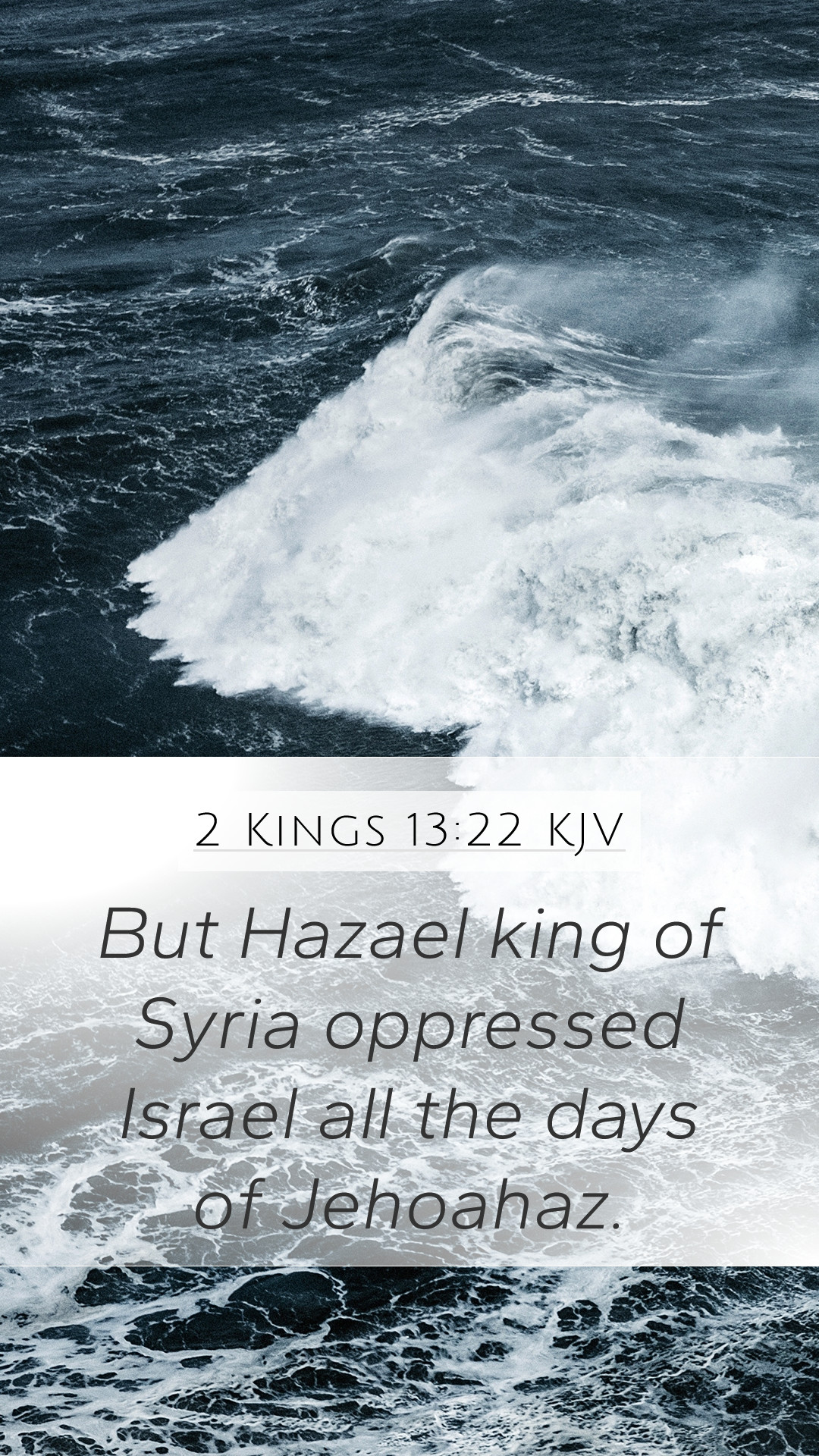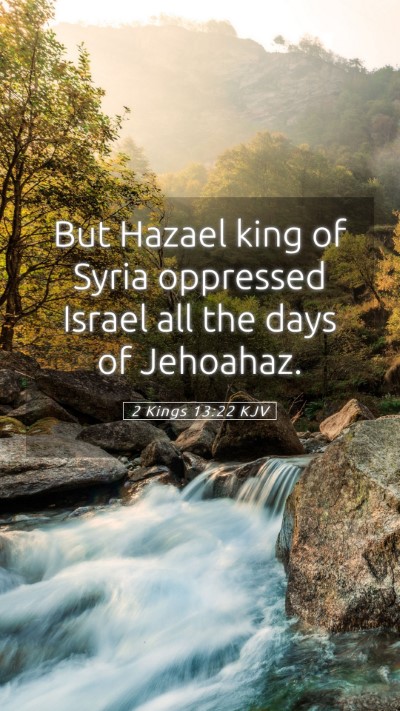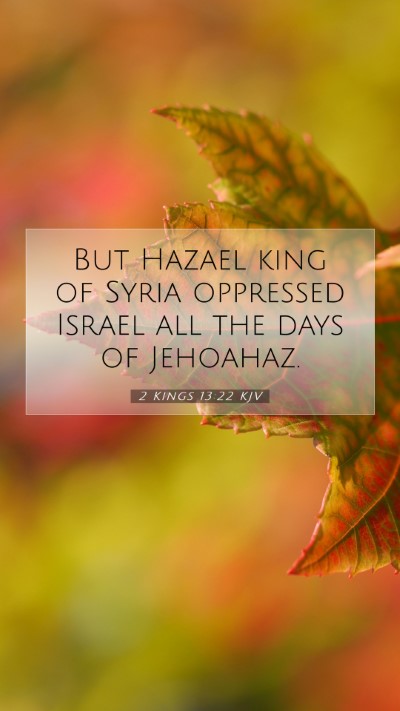Understanding 2 Kings 13:22
Verse Context: In 2 Kings 13:22, we find a reflection on the oppression faced by Israel under Hazael, king of Syria. The verse states, "But Hazael king of Syria oppressed Israel all the days of Jehoahaz." This passage summarizes the difficult circumstances of Israel during this time, highlighting the challenges faced by the nation and its leadership.
Bible Verse Meanings and Interpretations
Numerous commentaries shed light on the significance of this verse. Below, we summarize insights from notable public domain commentators including Matthew Henry, Albert Barnes, and Adam Clarke.
Matthew Henry's Commentary
According to Matthew Henry, this verse illustrates God’s discipline of Israel through the oppression by Hazael. Henry emphasizes that such oppression serves as a reminder of Israel's sins and the consequences of turning away from God. He notes that Jehoahaz, the king, inherited a legacy of strife and that God's judgment, in the form of foreign oppression, acts not just as punishment but also as a call to repentance.
Albert Barnes' Notes
Albert Barnes expands on this verse by providing historical context. He notes that Jehoahaz was unsuccessful in efforts to liberate Israel from its oppressors. Barnes explains that the oppression symbolizes God's disfavor towards Israel because of their idolatry. He highlights how God allowed Hazael's tyranny to continue as a form of chastisement, ultimately aiming for the redemption of His people when they turned back to Him.
Adam Clarke's Commentary
Adam Clarke dives into the political dynamics of the time, describing Hazael's reign as particularly brutal for Israel. Clarke points out that this verse not only marks the historical account of oppression but also serves to reveal the divine narrative – that despite their suffering, God remains sovereign over the affairs of nations. He stresses that the trials faced by Israel are also indicative of God’s overarching plan for His people.
Significance and Application
The verse reminds us that suffering has a purpose within the biblical narrative. It encourages believers to reflect on personal and communal faithfulness to God. The presence of adversity is often a call for introspection and can lead believers to deeper faith and reliance on divine strength.
Key Themes
- Divine Discipline: The oppression signifies God's displeasure with Israel's waywardness.
- Hope in Despair: Even in oppression, there is a reminder of the possibility of returning to God and receiving His mercy.
- Historical Narrative: This verse provides insight into the historical challenges faced by Israel, highlighting their need for faithful leadership.
Related Bible Cross References
- 2 Kings 8:12 - Insight into Hazael's brutality foretold.
- 2 Kings 10:32-33 - Further exploration of Hazael's oppression over Israel.
- Judges 6:1-6 - A previous account of oppression and God's deliverance during the time of Gideon.
- Amos 1:3 - A prophecy against Damascus that includes judgment against Hazael.
Bible Study Insights
For those engaged in online Bible study or participating in Bible study groups, understanding 2 Kings 13:22 can significantly enrich discussions around themes of justice, divine sovereignty, and historical context. Consider the verse as an entry point into broader Bible study resources, focusing on how to interpret Bible verses through lenses of historical, cultural, and theological frameworks.
How to Apply These Insights
When studying such passages, it's crucial to ask:
- What does this scripture reveal about God's character?
- How do the consequences of the Israelites’ actions shape our understanding of their relationship with God?
- In what ways can this historical context inform our modern-day faith journey?
Conclusion
In conclusion, 2 Kings 13:22 provides valuable Bible verse commentary, offering profound insights into God’s discipline, the nature of suffering, and the importance of repentance. Whether through personal reflection or group Bible study lessons, this passage serves as an enduring reminder of the complexities within biblical narratives and the ever-present opportunity for restoration in the divine relationship.


